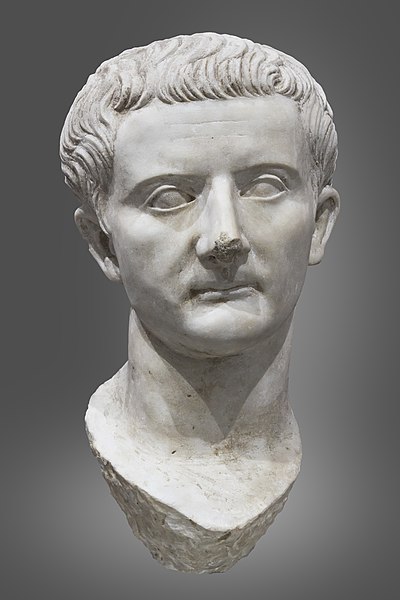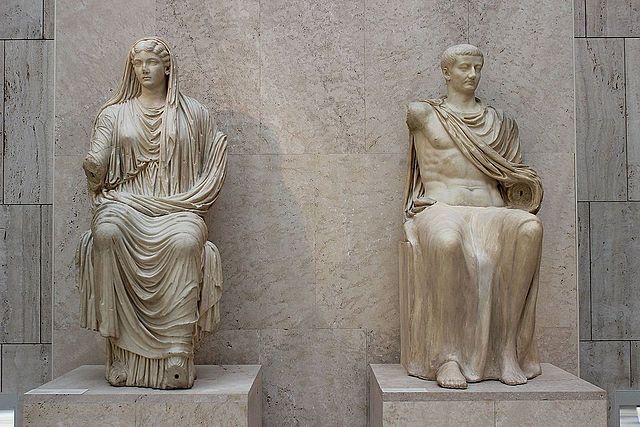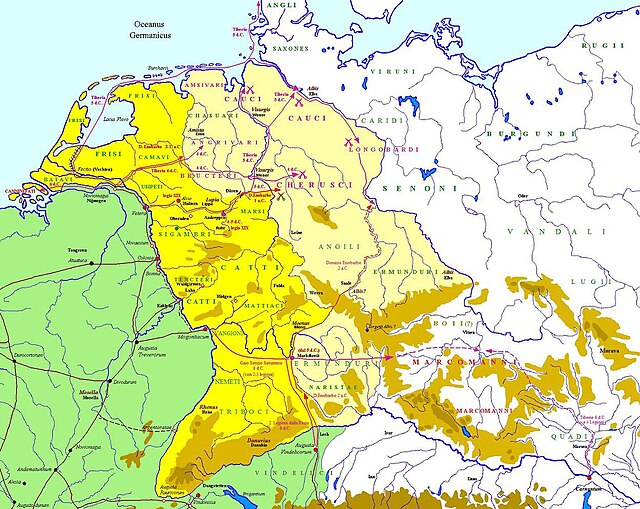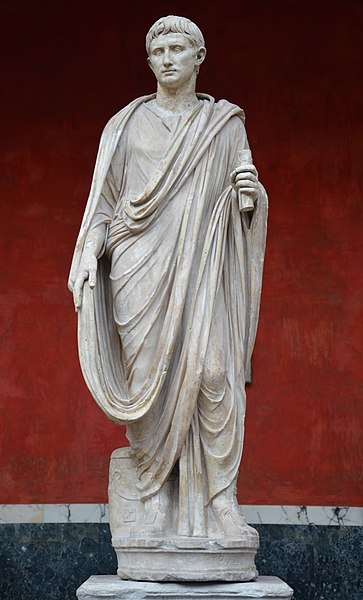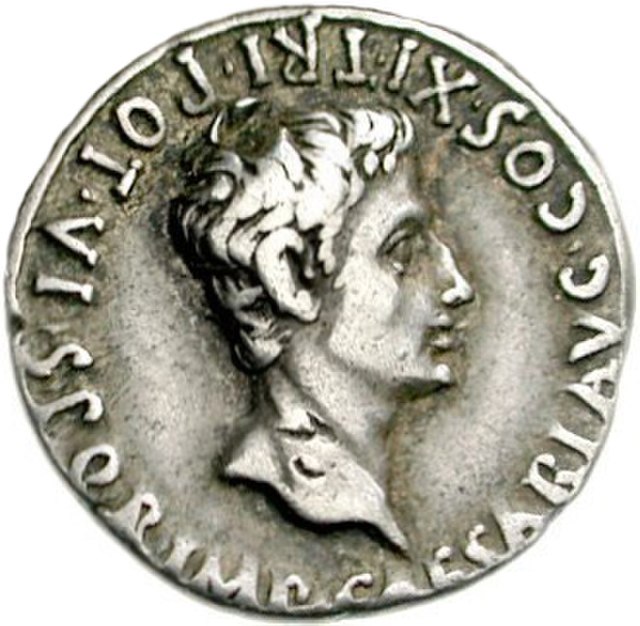Tiberius Julius Caesar Augustus was Roman emperor from AD 14 until 37. He succeeded his stepfather Augustus, the first Roman emperor. Tiberius was born in Rome in 42 BC to Roman politician Tiberius Claudius Nero and his wife, Livia Drusilla. In 38 BC, Tiberius' mother divorced his father and married Augustus. Following the untimely deaths of Augustus' two grandsons and adopted heirs, Gaius and Lucius Caesar, Tiberius was designated Augustus' successor. Prior to this, Tiberius had proved himself an able diplomat, and one of the most successful Roman generals: his conquests of Pannonia, Dalmatia, Raetia, and (temporarily) parts of Germania laid the foundations for the empire's northern frontier.
Bust, Musée Saint-Raymond, Toulouse
Tiberius and his mother Livia, AD 14–19, from Paestum, National Archaeological Museum of Spain, Madrid
The campaigns of Tiberius, Ahenobarbus, and Saturninus in Germania between 6 BC and 1 BC
Aureus of Tiberius, c. AD 27–30. Caption: TI. CAESAR DIVI AVG. F. AVGVSTVS / MAXIM. PONTIF.
The Roman emperor was the ruler and monarchical head of state of the Roman Empire, starting with the granting of the title augustus to Octavian in 27 BC. The term "emperor" is a modern convention, and did not exist as such during the Empire. Often when a given Roman is described as becoming emperor in English, it reflects his taking of the title augustus and later basileus. Another title used was imperator, originally a military honorific, and caesar, originally a surname. Early emperors also used the title princeps alongside other Republican titles, notably consul and pontifex maximus.
Bust of Augustus wearing the corona civica
Augustus depicted as a magistrate at the Ny Carlsberg Glyptotek
Cameo of Augustus in a quadriga drawn by tritons at the Kunsthistorisches Museum, Vienna
Denarius of Augustus (18 BC).

